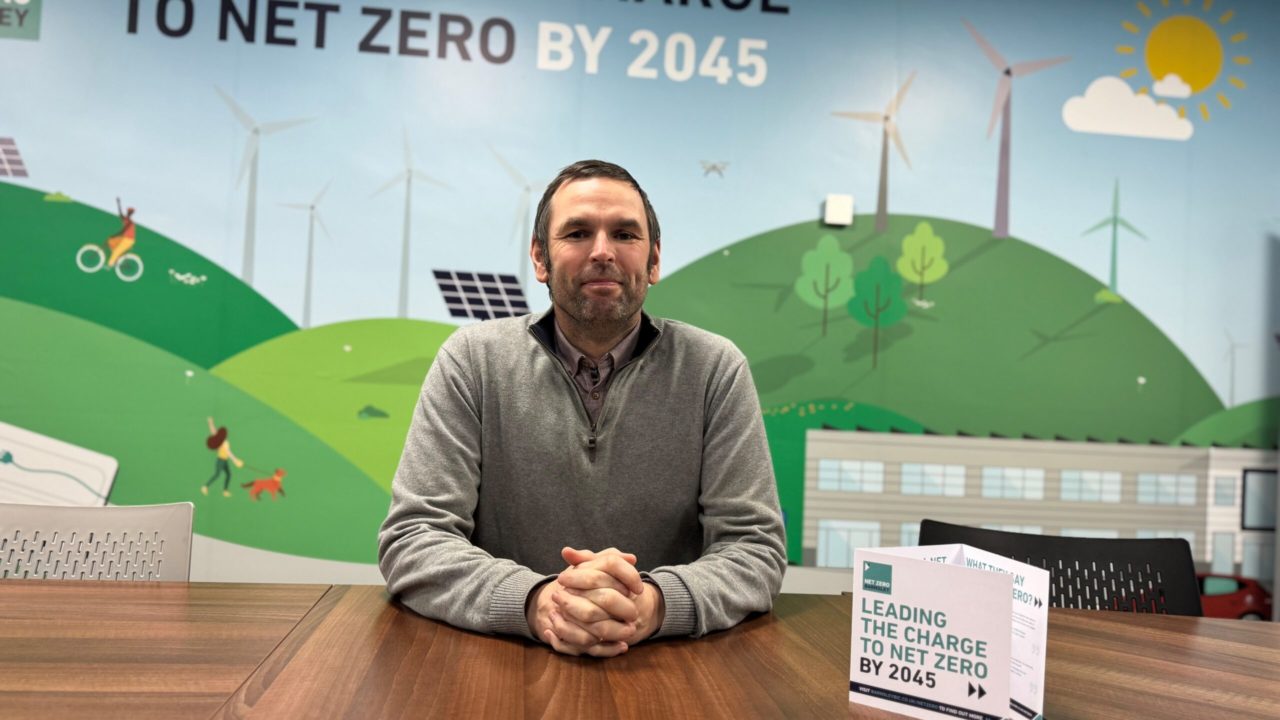
When it comes to sustainability in Barnsley, The Business Village is leading the way. It’s been the delivery organisation for two net zero projects and is branded as the ‘home of net zero’ in the region. But the team’s ambitions go beyond cutting carbon emissions.
Under the leadership of Chief Executive Martin Beasley, The Business Village is now working on a broader ESG strategy.
ESG (Environmental, Social, and Governance) is a framework measuring a business’s impact on the environment, society, and how transparent and accountable it is. It looks at how the business interacts with employees, customers, suppliers, and communities. But it also examines business ethics, compliance, and leadership.
The Business Village has been working on reducing carbon emissions for several years now. It led to solar panels being installed on all but one building, along with several other energy efficiency measures. Then, late in October 2024, solar panels were finally installed on the last building.
“Our ambition to become net zero continues,” Martin explains. “My predecessor, Adrian Waite, drew up a seven-point plan to reduce carbon emissions. Installing the solar panels on Building 3 was a big part of that jigsaw.”
However, projects of this size are not always easy to fund, especially with the financial challenges faced by businesses today. So, The Business Village turned to the UKSPF funded Net Zero Barnsley project for help.
“We secured a contribution towards our investment. With that funding in place, it was much easier getting the board to agree to the project,” Martin says. “The new panels began making a difference immediately – during periods throughout the week after installation, we didn’t need to buy electricity from the grid.”
Martin is also appreciative of the support received from Net Zero Barnsley during the funding application. “We worked with SYMCA’s business advisor, Nigel Trant, who helped us put the whole application together,” he says.
“Having a dedicated account manager to guide us through the process was invaluable. That kind of handholding makes a project like this much more straightforward.”
With the solar panels in place, The Business Village has begun looking at how to turn the investment into income. Currently, a battery stores any excess energy to power the building during peak hours. But, once the battery is full, the plan is to sell extra energy back to the grid via an export tariff.
Whilst there’s been good progress to reduce emissions, Martin is looking at the bigger picture, explaining that sustainability goes beyond solar panels. As part of a wider ESG strategy, he’s now exploring the possibility of B Corp certification.
The B Corp process will assess The Business Village’s performance in five key areas, showing a genuine commitment to doing good for the planet and people. It will also give the team valuable insights which they plan to share with other Barnsley businesses.
An initial benchmarking session has already taken place with Sarah Whale from Profit Impact. This assessed performance across the five B Corp areas, highlighting a need for more work on the social and governance side.
“Where possible, we already buy from tenants or other local businesses and support local charities. For example, we recently ordered bird and bat boxes from Cudworth’s Community Workshop,” Martin shares. “It shows the kind of things we do to make a difference for both the environment and the local community. But these connections are all informal, so we need to look at how they can be documented.”
The benchmarking exercise also identified a need for extra training.
“We’ve applied to the Skills Bank for funding to help us understand how to measure and track environmental, social, and governance metrics,” Martin says. “We know our current business structure may prevent us from qualifying for B Corp status, but we won’t know until we begin the process. Regardless of the outcome, the most important part is doing the work. Whether we achieve B Corp certification or simply develop our ESG strategy, we’re committed either way.”
Following the training, Martin says the team’s knowledge will be shared with other local businesses. He believes this is vital to help Barnsley Council achieve its aim of becoming net zero by 2045.
“The Business Village is here to support Barnsley Council’s inclusive economy agenda,” Martin explains. “Part of that includes working with SMEs across the borough to help them with ESG strategies and to reduce emissions. But it’s no good telling people how to do this without experiencing the process ourselves. That’s a big reason for working on our own ESG strategy and investing in the extra training. For us, it’s not about chasing a badge; it’s about wanting to make a genuine difference in Barnsley.”
To learn more about The Business Village, Net Zero Barnsley, and B Corp certification, get in touch with Kevin Steel, Business Development Manager.
Net Zero Barnsley is part of the Low Carbon Project, a project part-funded by the UK Government through the UK Shared Prosperity Fund. Sheffield City Council is the accountable body for the South Yorkshire region. The Low Carbon project has received £3,445,606 from the UK Government through the UK Shared Prosperity Fund.
The Shared Prosperity Fund provides £2.6 billion of funding for local investment by March 2025. The Fund aims to improve pride in place and increase life chances across the UK investing in communities and place, supporting local business, and people and skills. For more information, visit https://www.gov.uk/government/publications/ukshared-prosperity-fund-prospectus